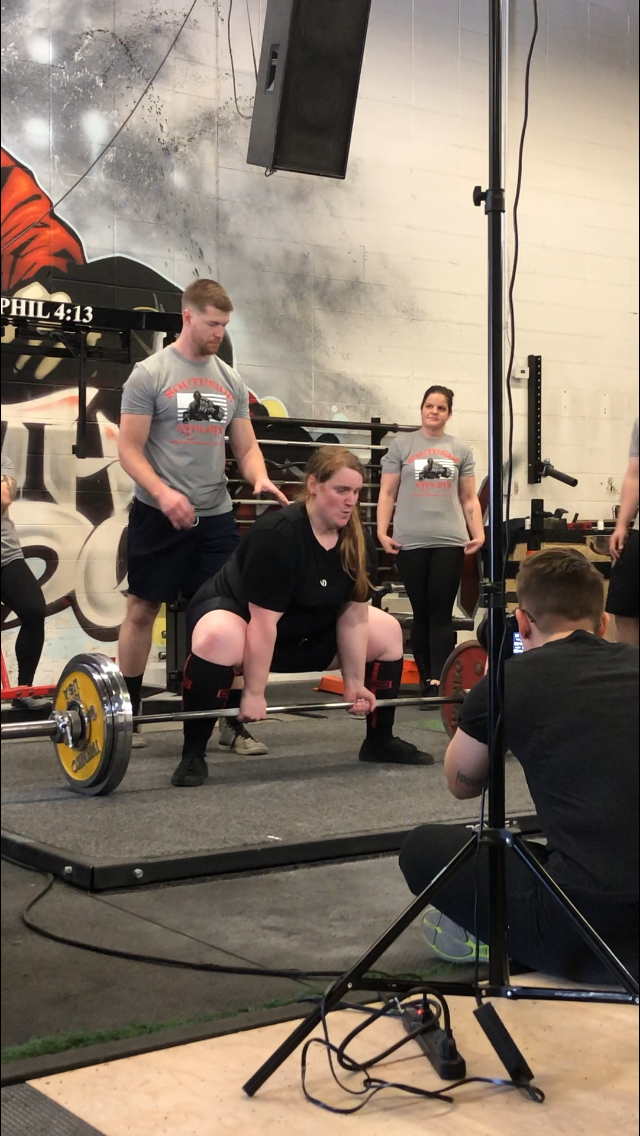
A Minneapolis transgender woman athlete is fighting back against a rule barring her from competing in powerlifting.
When JayCee Cooper, 32, steps up to the barbell loaded with nearly 400 pounds, she sees herself in a competition with herself, trying to pull more weight off the floor than last time.
But now she's battling to even compete in the federation that gives her the best chance to advance if the sport does work its way to the Olympics.
Despite submitting a therapeutic exemption for her medication spironolactone, a drug used to lower testosterone but can also mask steroid use, USA Powerlifting — one of several governing bodies for the strength sport comprised of the bench press, squat and deadlift — denied her application about one year ago.
"While I wasn't entirely shocked because of the current landscape of trans people in sports, of course it impacted me and it really made me upset and it really made me sad," she told WCCO Radio.
According to NBC News: "As part of her medication exemption application, Cooper provided documentation that her testosterone levels have remained under the International Olympic Committee’s accepted limit for two years. (USA Powerlifting falls under the International Powerlifting Federation, which adopted the IOC’s guidelines that allow transgender women to compete in women’s divisions provided their testosterone is below 10 nmol/L for at least 12 months.)"
USAPL's "Transgender Participation Policy" differs from the International Olympic Committee's rules on transgender inclusion. USAPL cites a "fair playing field" and physiological differences.
"To allow those born and who went through puberty as males to compete as females would be inherently discriminatory against a federally protected class: women," USAPL said in a statement to the outlet OutSports. "Further, allowing transgender males to use androgens when no other category of athlete is allowed them represents an unfair advantage and against the founding principles of USA Powerlifting. Accordingly, transgender women are allowed to compete in the division reflecting their birth, and transgender men may compete without androgens."
Many in the academic community refute that one-to-one association about testosterone and athletic ability.
Scores on social media, even Congresswoman Ilhan Omar, showed Cooper's support and lifters took to the podium to protest at the Minnesota State Championships. Now the sides have agreed to mediation after filing a discrimination complaint with the Minnesota Department of Human Rights.
Gender Justice legal director Jess Braverman says there could be an investigation by the department, or they could decide to file the case in court and go forward with a lawsuit.
"Minnesota courts have already ruled that trans exclusion in sports is discrimination under the Minnesota Human Rights Act, that was a 2017 case involving a recreational football league,so we do want to make it clear that trans exclusion is not an option here in Minnesota," Braverman said.
"We look forward to litigating this case and making it clear that in Minnesota you can't have a policy of trans exclusion whether it's in schools, in healthcare, or in sports."
Cooper has always been an athlete. She started playing soccer and t-ball at a young age, wrestled in middle school, and competed in track and field throwing events in high school. She was an elite rower and curler as well as she got older. She found powerlifting inclusive and exciting and a way to bond with her brother. It was the sport that reignited the athlete in her after she took time away when she was coming out.
"In having experienced some of the things that I have — some mistreatment, discrimination, harassment — there's only so much of that you can really stomach before you have to say enough is enough and stand up for yourself," Cooper said. "This was one of those moments where it was like, I've had to give up so much of what I love because of what others have said. This isn't going to be happening for me now (again).
